Latest Advances in Knowledge in Customer Service
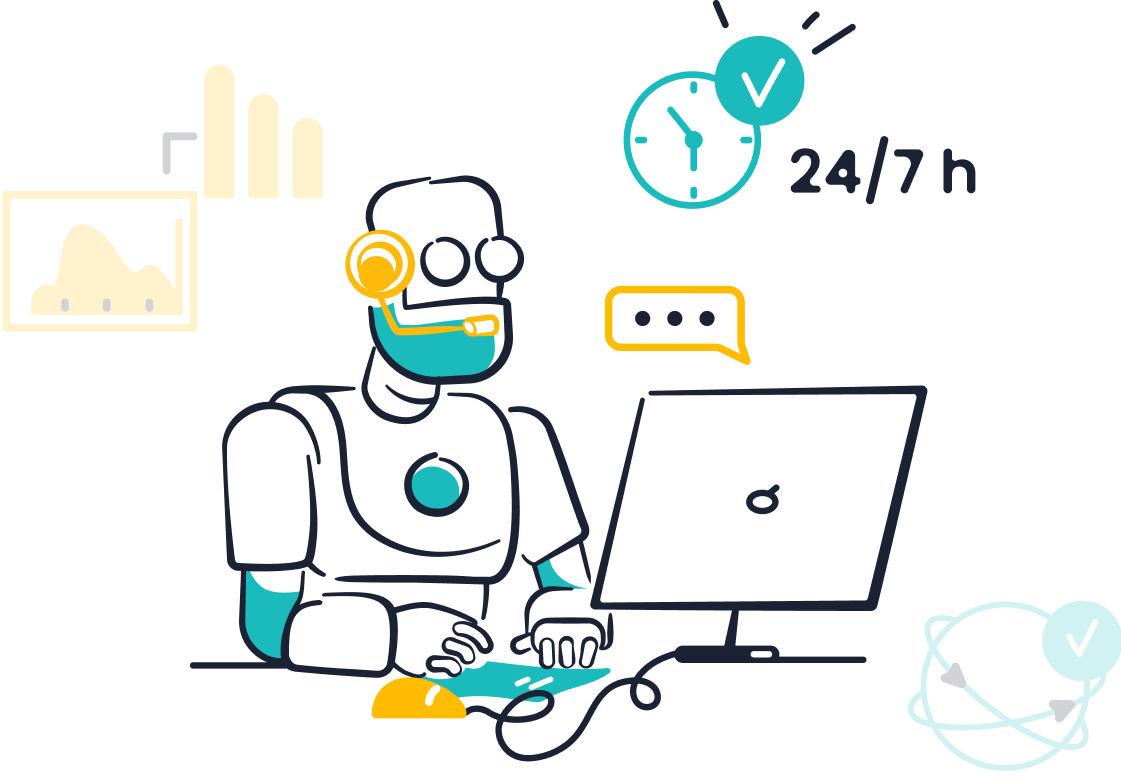
Knowledge in customer service changes rapidly, driven by constant innovation and shifting customer needs. Companies now adopt the latest trends to remain competitive, using AI, automation, and omnichannel solutions to transform service delivery. By 2025, up to 95% of customer interactions will use AI-powered tools, improving both speed and satisfaction.
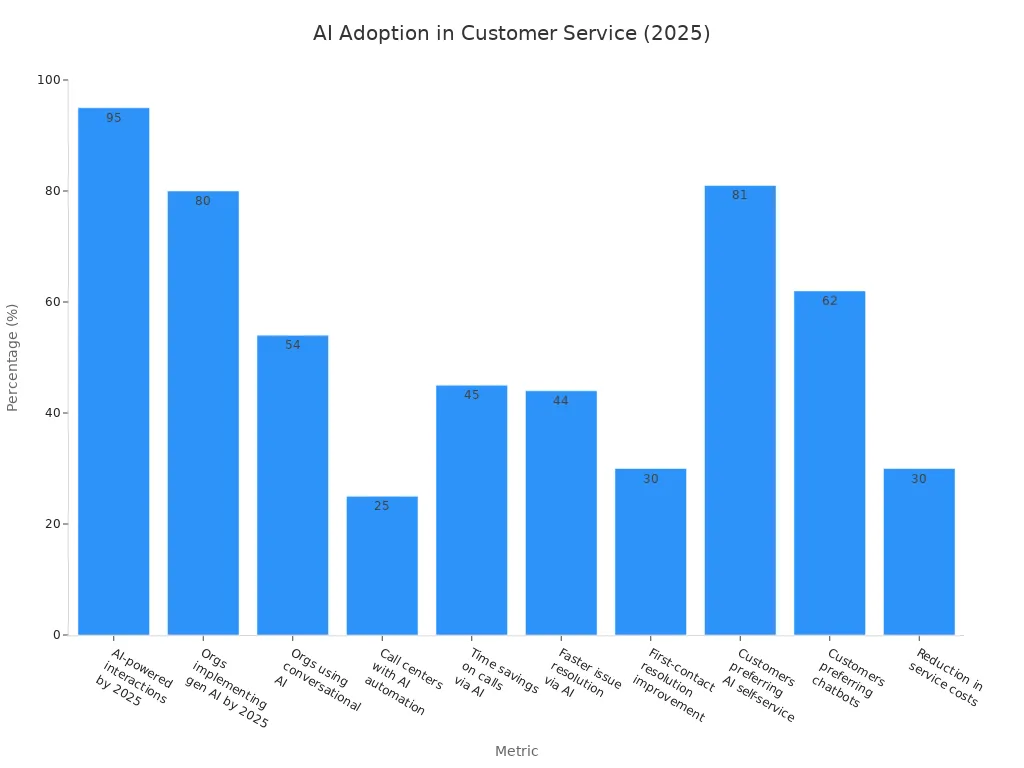
Sobot AI and the Sobot call center lead this shift, helping organizations meet new service expectations and leverage knowledge in customer service for real results.
Knowledge in Customer Service Today

Evolving Customer Expectations
Customer expectations for service have changed dramatically in recent years. The COVID-19 pandemic accelerated digital transformation, pushing companies to adopt new technology and strategic approaches at a rapid pace. Customers now expect mobile-friendly, personalized, and omnichannel service that is available 24/7. They want fast, seamless, and intuitive experiences that save time and deliver relevant information. According to Salesforce Research, 80% of customers consider the experience a company provides as important as its products or services. Nearly 79% expect connected journeys across departments, while 73% demand personalized interactions. Many customers feel frustrated when companies fail to adapt to their changing needs. Social media and an always-on culture have redefined speed, making near-instant responses the new standard. Customers also prefer self-service options, with 78% of CRM leaders reporting that customers want to solve issues independently. This shift highlights the importance of effective customer service knowledge management and the need for strategic technology investments.
Role of AI and Automation
AI and automation now play a central role in customer service knowledge management. Companies use AI to automate knowledge discovery, content tagging, and semantic search, making information more accessible for both agents and customers. Cloud-based systems allow real-time updates and collaboration, supporting strategic decision-making and improving efficiency. The market guide for customer service knowledge management from Gartner emphasizes the deployment of conversational generative AI to transform customer interactions and drive strategic growth. AI-powered chatbots and automation tools enable 24/7 support, reduce inbound call handling time by 38%, and increase agent productivity by 14%. Mature AI adopters report a 17% higher customer satisfaction rate. The following table summarizes the impact of AI and automation on customer service environments:
| Evidence Aspect | Description & Impact |
|---|---|
| Customer Satisfaction Increase | Mature AI adopters report a 17% higher customer satisfaction rate. |
| Response Time Improvement | AI chatbots reduce inbound call handling time by 38%. |
| Agent Productivity | AI assistance increases human agent productivity by 14%. |
| Customer Engagement | 24/7 AI support increased engagement by 40% in a global camping company example. |
| Efficiency Gains | Intelligent routing improved agent efficiency by 33%. |
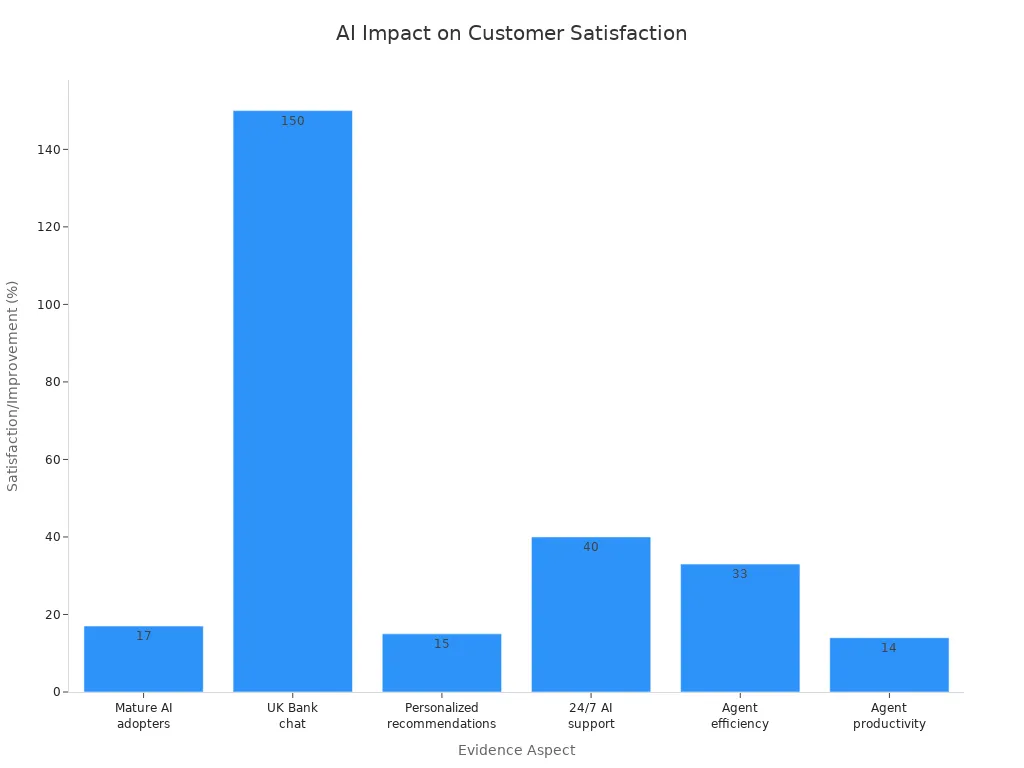
AI-driven customer service knowledge management supports strategic goals by improving first contact resolution, agent onboarding, and customer satisfaction. Companies that invest in these technologies position themselves for long-term success in a rapidly evolving market.
Customer Service Knowledge Management Trends
AI-Driven Solutions
Customer service knowledge management continues to evolve as organizations embrace new technology and strategic approaches. AI-driven solutions now shape the way companies deliver service, automate knowledge capture from interactions, and provide knowledge that’s ready for use. According to the market guide for customer service knowledge management, 83% of customers expect instant interaction when they contact a business (Salesforce Research). Companies respond by centralizing information, enabling agents to resolve queries faster and more consistently.
AI-powered customer service knowledge automation supports intelligent self-service and empowers agents to handle complex issues. Recent surveys show that 78% of customer service organizations have adopted AI, with 43% investing in chatbots and automation to improve support speed and scalability (McKinsey). AI automates initial inquiry handling, routes requests efficiently, and provides predictive support. This reduces manual work and enables agents to focus on strategic tasks.
AI-powered chatbots and knowledge bases offer 24/7 instant solutions, decreasing the volume of requests that require human agents. Predictive analytics allow AI to anticipate customer needs and proactively resolve issues, which improves operational efficiency and customer satisfaction.
| Mechanism / Company | Description / Benefits |
|---|---|
| Automated Inquiry Handling | AI automates responses and routes inquiries, reducing manual handling and speeding up service. |
| AI-Powered Self-Service | Chatbots and knowledge bases provide instant solutions, lowering demand on agents. |
| Predictive and Personalized Support | AI uses analytics to anticipate needs and resolve issues proactively. |
| Salesforce | Einstein AI platform delivers faster case resolution and personalized support. |
| Amazon | Alexa virtual assistant handles order tracking and product info, reducing support requests. |
| Sephora | AI chatbot offers personalized recommendations, improving engagement and resolution. |
| Starbucks | Virtual assistant automates order placement and provides information quickly. |
| Spotify | AI chatbot understands natural language queries and offers personalized recommendations. |
AI adoption drives strategic improvements in customer service knowledge management. Companies see faster response times, higher first-contact resolution rates, and increased customer satisfaction. AI-powered solutions also support conversational AI and support conversational ai, which help organizations deliver personalized and efficient service.
Omnichannel and Personalization
Omnichannel strategies and personalization represent major knowledge management trends in customer service. Businesses use technology to unify customer interactions across channels, ensuring consistent and relevant experiences. The market guide for customer service knowledge management highlights the importance of centralized knowledge, which enables agents and chatbots to deliver uniform responses and build customer trust.
True omnichannel marketing delivers a cohesive experience, strengthening customer loyalty and retention. Companies using omnichannel approaches see a 91% higher year-over-year retention rate and a 30% increase in customer lifetime value (Harvard Business Review). AI-driven personalization within omnichannel strategies reduces churn by 10–30% and increases customer lifetime value by 20–50%. Vodafone cut churn by 20% and improved retention spending efficiency by 15% using AI personalization (Vodafone Case Study). Netflix’s recommendation engine saves about $1 billion annually by reducing churn (Netflix Tech Blog).
- Omnichannel personalization boosts customer retention by 89%.
- Companies excelling in personalization generate 40% more revenue than those that do not.
- AI-driven personalization increases customer engagement and satisfaction.
Personalization in customer service knowledge management strengthens trust and satisfaction, which leads to higher loyalty. AI tailors recommendations to customer preferences and contextual data, increasing the positive effect of trust on satisfaction and loyalty. Satisfaction mediates the relationship between trust and loyalty, so fulfilling customer expectations through personalized service leads to long-term loyalty.
| Metric | Impact/Value | Explanation |
|---|---|---|
| Year-over-year retention rate | 91% higher for omnichannel users | Businesses using omnichannel marketing see significantly higher retention. |
| Customer lifetime value (LTV) | 30% higher for omnichannel customers | Indicates stronger loyalty and long-term value from customers engaged across channels. |
| Churn rate reduction | 10% to 30% with AI-driven personalization | AI personalization within omnichannel strategies reduces customer churn. |
| Communication timing | Early post-purchase contact increases retention | Prompt engagement after first purchase encourages repeat buying. |
Sobot’s Omnichannel Solution (Sobot Omnichannel) provides a unified workspace for agents, consolidating customer data and interactions from multiple channels. This technology enables personalized, fast, and accurate service, which enhances customer satisfaction and loyalty. Sobot’s platform supports strategic goals by improving operational efficiency and empowering agents to deliver consistent experiences.
Sobot Chatbot in Action
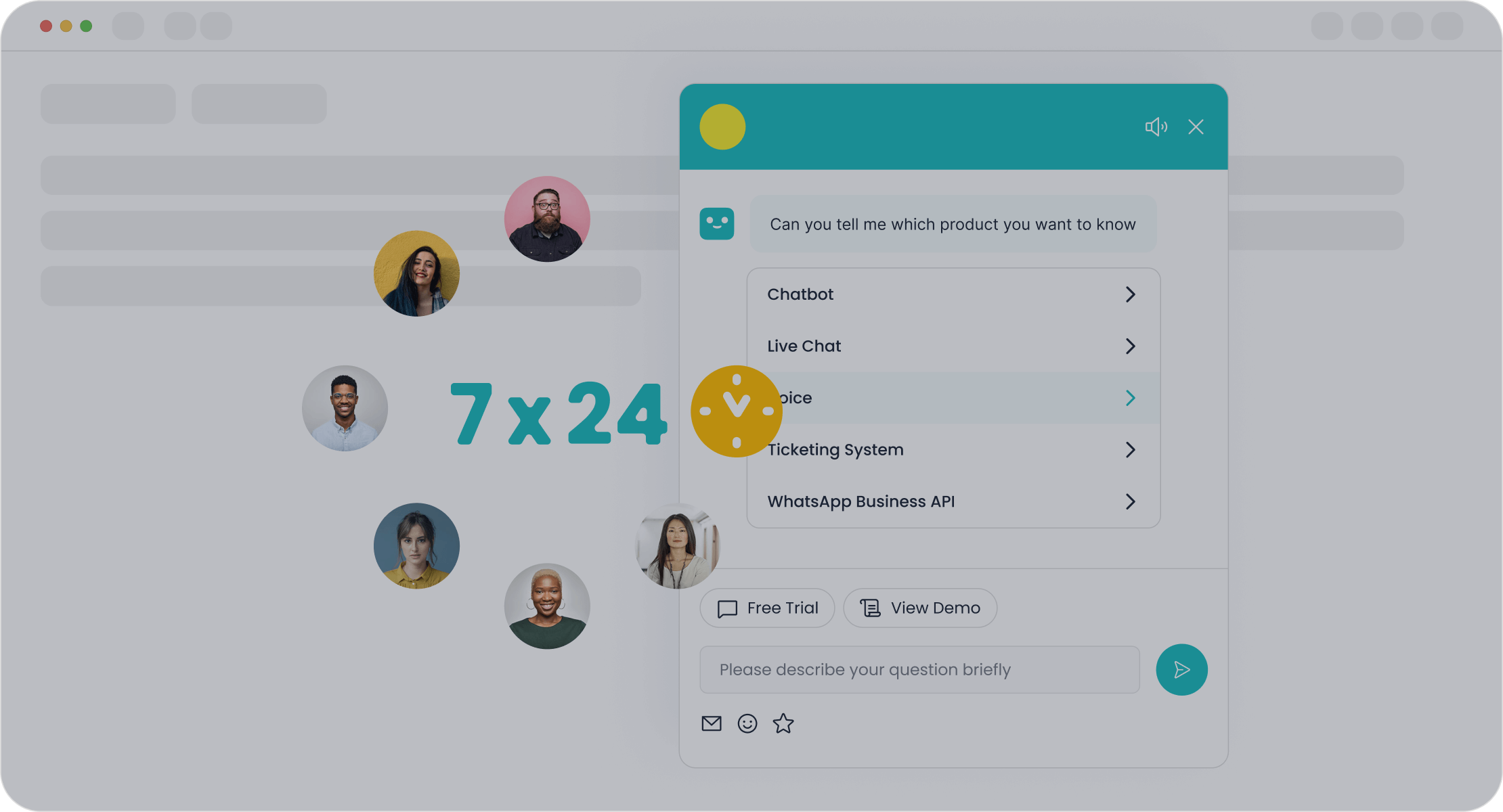
Sobot’s Chatbot exemplifies the latest knowledge management trends in customer service. The chatbot uses AI to automate routine queries, resolve issues quickly, and support agents with knowledge that’s ready for use. Sobot’s solution handles up to 70% of routine queries, with users reporting up to 95% customer satisfaction (Sobot Chatbot). During peak times, Sobot’s chatbot increases inquiry handling by 2.5×, deflects 43% of tickets, and reduces customer service costs by 30%.
- Sobot Chatbot resolves the majority of level 1 support issues, reducing agent workload.
- AI automation resolves customer service tickets 52% faster than traditional methods.
- By 2024, 73% of support leaders expect customers to demand AI-enhanced service.
- 73% of shoppers believe AI improves their overall experience.
Industry statistics show that AI chatbots reduce average handling time by up to 40% and increase customer satisfaction by approximately 30%. Sobot’s chatbot matches or exceeds these benchmarks, offering multilingual support and cost efficiency for small and medium businesses. The chatbot’s automated knowledge capture from interactions ensures that both agents and customers access the same up-to-date information, supporting strategic goals and improving service quality.
| Feature/Metric | Sobot Chatbot | Other Leading Chatbots (General AI) |
|---|---|---|
| Resolution of routine queries | Handles up to 70% | AI chatbots resolve up to 86% without human intervention |
| Customer satisfaction rate | Up to 95% reported by users | Over 80% positive experience reported |
| Inquiry handling increase | 2.5× increase during peak times | AI reduces handling time by 40%, boosting satisfaction by 30% |
| Cost efficiency | 40% cost reduction (Klarna case) | Not specified |
| Ticket deflection | 43% ticket deflection (Motel Rocks) | Not specified |
| Pricing | Starting at $30/month (SMBs) | Often higher, enterprise-focused pricing |
| Multilingual support | Yes | Yes |
Sobot’s chatbot and omnichannel solution demonstrate how innovation in customer service knowledge management delivers strategic benefits. These products enable intelligent self-service, reduce costs, and improve customer satisfaction. Sobot’s technology supports conversational ai and empowers organizations to scale support operations efficiently. The platform’s automated knowledge capture ensures that knowledge management trends remain at the forefront of service delivery.
Sobot’s commitment to strategic technology adoption and customer-centric innovation positions it as a leader in customer service knowledge management. The company’s solutions help businesses break down silos, ensure consistency, and enhance accessibility, driving measurable improvements in service quality and customer loyalty.
Overcoming Challenges in Knowledge Management
Breaking Down Silos
Many organizations struggle with silos that block the flow of information between teams. Silos slow down data management and limit innovation. Teams often work in isolation, which leads to duplicated efforts and inconsistent customer experiences. To address this, leading companies use several strategies:
- Develop a shared purpose by aligning teams around common goals and key performance indicators. This approach helps everyone feel responsible for success.
- Foster cross-team collaboration through activities like shadowing and integrated onboarding programs. These activities build empathy and understanding.
- Clarify roles and responsibilities to streamline efforts and avoid confusion.
- Balance proactive and reactive customer care by learning from top-performing brands.
- Unite customer care and marketing on digital channels to deliver seamless experiences.
These steps help break down barriers, improve data management, and create a culture of knowledge sharing. When teams work together, customer service knowledge management becomes more effective.
Ensuring Consistency
Consistency is vital in customer service knowledge management. Without it, customers receive mixed messages, and agents waste time searching for answers. A centralized knowledge base acts as a single source of truth. It ensures that all agents provide the same accurate information, which helps improve service consistency and builds trust with customers. For example, Two Step Social saw a 40-50% reduction in time spent guiding the team after adopting a centralized system. Regular updates and structured reviews keep content current and reliable. AI-powered tools automate updates and personalize knowledge delivery, which leads to faster issue resolution and higher satisfaction. Consistency also helps accelerate employee onboarding, as new hires can quickly access the right information.
Enhancing Accessibility
Accessibility in customer service knowledge management means making information easy to find for both agents and customers. Leading organizations use technology to support this goal:
- Establish corporate accessibility policies to identify barriers in the customer journey.
- Use clear menus, number recognition, and omni-channel platforms to improve self-service.
- Design customer journeys with clear language and options to reach live agents.
- Train agents to recognize customer needs and log accessibility requirements in the CRM.
- Collect feedback from customers and agents to improve accessibility over time.
AI-powered search and dynamic knowledge bases help agents and customers find answers quickly. Connecting AI agents to the knowledge base provides instant, 24/7 support. These practices strengthen data management, improve service quality, and support scalable operations.
Customer Service Knowledge Management Software
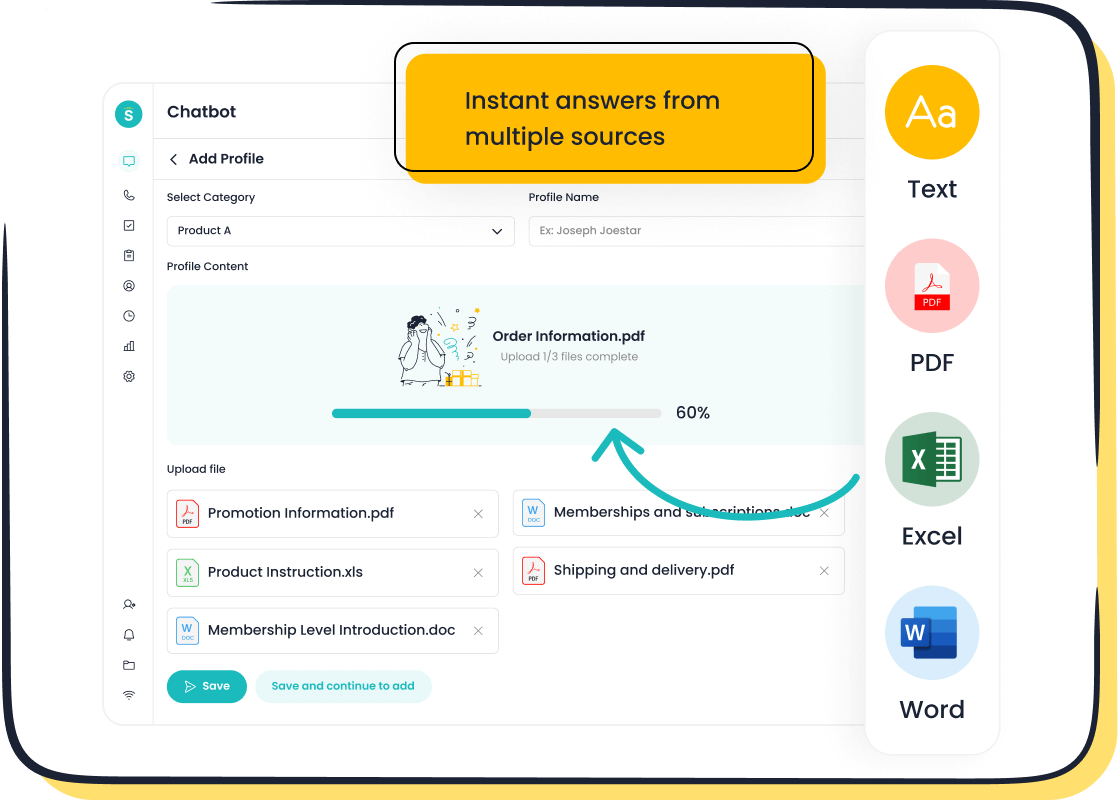
Key Features
Customer service knowledge management software has become essential for organizations aiming to deliver fast, accurate, and consistent support. Top-rated knowledge management software provides a centralized and searchable content hub, supporting various media types such as PDFs, videos, and presentations. Teams can scale these platforms across departments, expanding beyond customer service to include sales and marketing. Integration with popular tools like Salesforce and Microsoft Teams allows seamless workflow and collaboration. These platforms support both internal and external knowledge bases, enabling agents to post questions and source answers from experts. Quick keyword search features help agents resolve issues efficiently, reducing time spent searching for information. Regular content updates and automated workflows ensure that the right answers reach the right person at the right time. Many solutions also include an employee learning center, fostering continuous development and collaboration through shared documentation and training resources. A robust knowledge asset center helps organizations break down silos and improve productivity.
Sobot’s Unified Platform
Sobot’s unified platform stands out in the field of customer service knowledge management software. The platform integrates with widely used CRM systems and business tools through its SDK, creating a cohesive environment for customer support. Customizable workflows and automation features reduce repetitive tasks, streamlining operations for support teams. Intelligent routing directs inquiries to the most suitable agents, improving response times and customer satisfaction. The agent dashboard consolidates interactions from multiple channels, giving agents a comprehensive view of each customer’s journey. Sobot’s robust API allows developers to extend platform capabilities and connect with additional business systems. This unified approach ensures that knowledge management software supports efficient, scalable, and personalized service delivery. For more details, visit Sobot’s official website.
Security and Integration
Security remains a top priority for any customer service knowledge management software. Leading platforms use encryption for data at rest and in transit, protecting sensitive information from unauthorized access. Access controls, including Single Sign-On (SSO), ensure only authorized users can view or edit content. Audit trails track system and data access, supporting accountability and compliance. Continuous monitoring and intrusion detection systems help organizations respond to threats in real time. Disaster recovery and business continuity plans are regularly tested to maintain system availability. Integration capabilities also play a critical role. Embedding knowledge management software within existing customer touchpoints, such as websites and mobile apps, streamlines workflows and improves agent productivity. API and automation integrations enable custom workflows, automated updates, and data analytics exports. These features support global deployment, maintain high system performance, and enhance both agent and customer experiences.
Real-World Impact and Future Trends
Case Study: OPPO and Sobot
OPPO, a global leader in smart devices, faced a surge in customer inquiries during peak shopping periods. The company partnered with Sobot to transform its customer service operations. By integrating Sobot’s AI-powered chatbot and ticketing system, OPPO streamlined support and improved efficiency. The chatbot handled routine queries, freeing agents to focus on complex issues. This strategic approach led to measurable improvements:
| Metric | Improvement Achieved |
|---|---|
| Chatbot resolution rate | 83% |
| Positive feedback score | 94% |
| Increase in repeat purchases | 57% |
These results highlight how Sobot’s solutions elevated OPPO’s customer service, driving higher satisfaction and loyalty. The partnership also reduced knowledge base maintenance by 90%, creating a future-ready foundation for ongoing growth. For more details, see OPPO’s customer story.
Measuring Success
Organizations measure the impact of knowledge management advances using a range of metrics. These metrics track how knowledge is created, shared, and used, revealing strengths and areas for improvement. Key categories include:
| Metric Category | Description | Example Metrics |
|---|---|---|
| Activity Metrics | Track engagement and content creation | Knowledge contributions, user engagement, search trends |
| Performance Metrics | Assess usage and efficiency | Content interactions, retrieval time, response time |
| Maturity Metrics | Evaluate development and relevance | Content aging, update frequency |
| Impact Metrics | Measure business and customer service outcomes | Feedback quality, efficiency, ticket reduction |
Companies also use search analytics, user feedback, and comparisons between knowledge base visits and support tickets. These tools help organizations align knowledge management with strategic goals, improve onboarding, and ensure customer service delivers consistent value. Benchmarking against industry standards, such as Net Promoter Score (NPS) and customer satisfaction, supports continuous improvement and innovation.
Future Knowledge Management Trends
Industry experts predict that AI-powered tools will shape the future of customer service knowledge management. Companies will adopt knowledge copilots and cloud-based platforms to support remote work and omnichannel service. Real-time analytics and seamless integrations will become standard, enhancing both employee and customer experience. To prepare, organizations should:
- Conduct knowledge audits to identify gaps.
- Engage stakeholders to understand pain points.
- Align knowledge management with business objectives.
- Define clear success criteria and prioritize outcomes.
- Integrate generative AI for automation and personalization.
- Foster a culture that rewards knowledge sharing.
A strategic focus on data governance, employee experience, and ethical AI use will help companies build a future-ready foundation. As trends evolve, organizations that invest in advanced knowledge management will deliver superior customer service and maintain a competitive edge.
Advances in customer service knowledge management—driven by AI, automation, and omnichannel solutions—reshape how organizations serve customers. Sobot’s unified platform stands out by offering industry-specific AI, broad channel coverage, and secure, integrated knowledge sharing. Companies benefit from:
- Improved decision-making and productivity
- Streamlined self-service and 24/7 support
- Enhanced employee onboarding and collaboration
To implement these innovations, organizations should define clear roles, integrate training, and select scalable, user-friendly software. Explore resources like on-demand training, comprehensive guides, and AI-powered tools to build a future-ready customer service strategy.
FAQ
What is knowledge in customer service and why does it matter?
Knowledge in customer service means having accurate information ready for use during every interaction. This helps agents answer questions quickly, improves service consistency, and builds trust. Companies that manage knowledge well deliver better experiences and see higher customer satisfaction.
How does AI-powered customer service knowledge automation improve support?
AI-powered customer service knowledge automation speeds up responses and reduces manual work. AI can capture knowledge from interactions, suggest answers, and support conversational AI. This technology helps agents focus on complex issues and enables intelligent self-service for customers.
What are the latest knowledge management trends in customer service?
Recent knowledge management trends include omnichannel support, automation, and personalized experiences. Companies use knowledge management software to centralize information, automate updates, and provide a knowledge asset center. These trends help organizations stay competitive and build a future-ready foundation.
How does knowledge management software help with onboarding new agents?
Knowledge management software accelerates employee onboarding by giving new agents access to a centralized knowledge base. This software provides knowledge that’s ready for use, supports data management, and ensures agents learn best practices quickly, improving service quality from day one.
Why is automated knowledge capture important for customer service teams?
Automated knowledge capture collects information from every customer interaction. This process keeps the knowledge base current and accurate. It also helps teams improve service consistency, supports strategic decision-making, and ensures customers always receive up-to-date answers.
See Also
How AI Agents Are Transforming Customer Support Services
Ways AI Software Enhances Customer Service Efficiency Today
The Best Ten Customer Service Software Solutions For 2024
